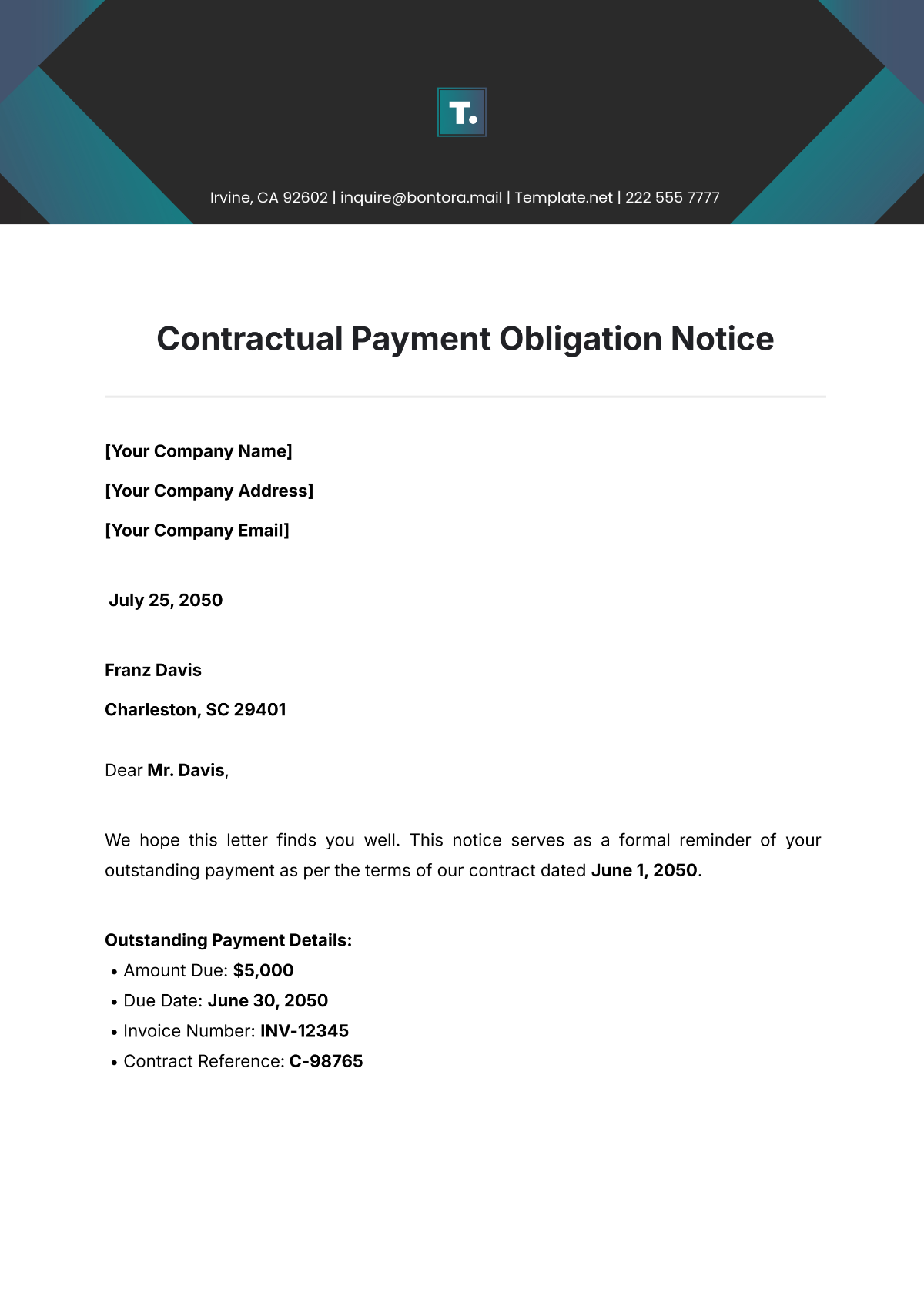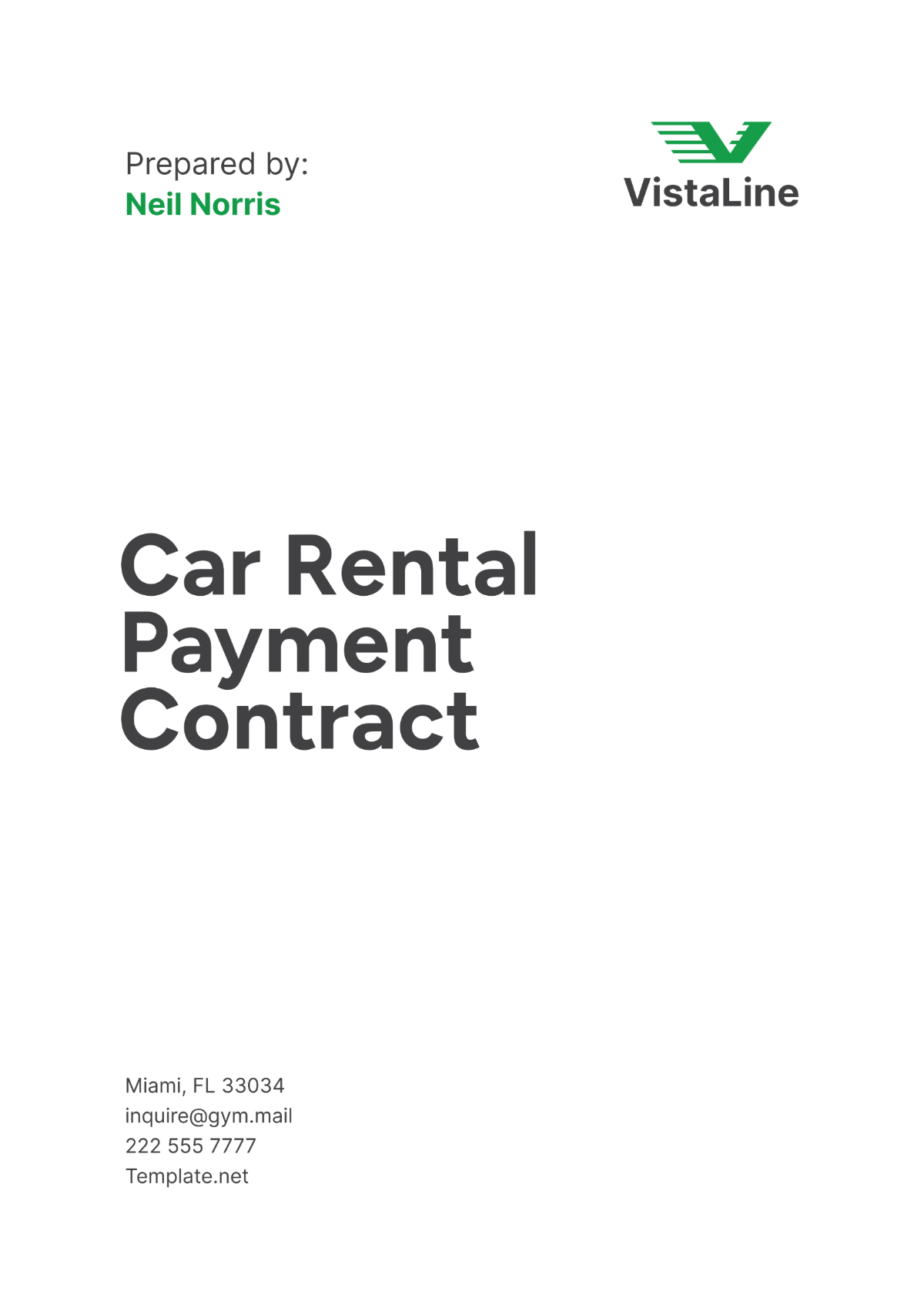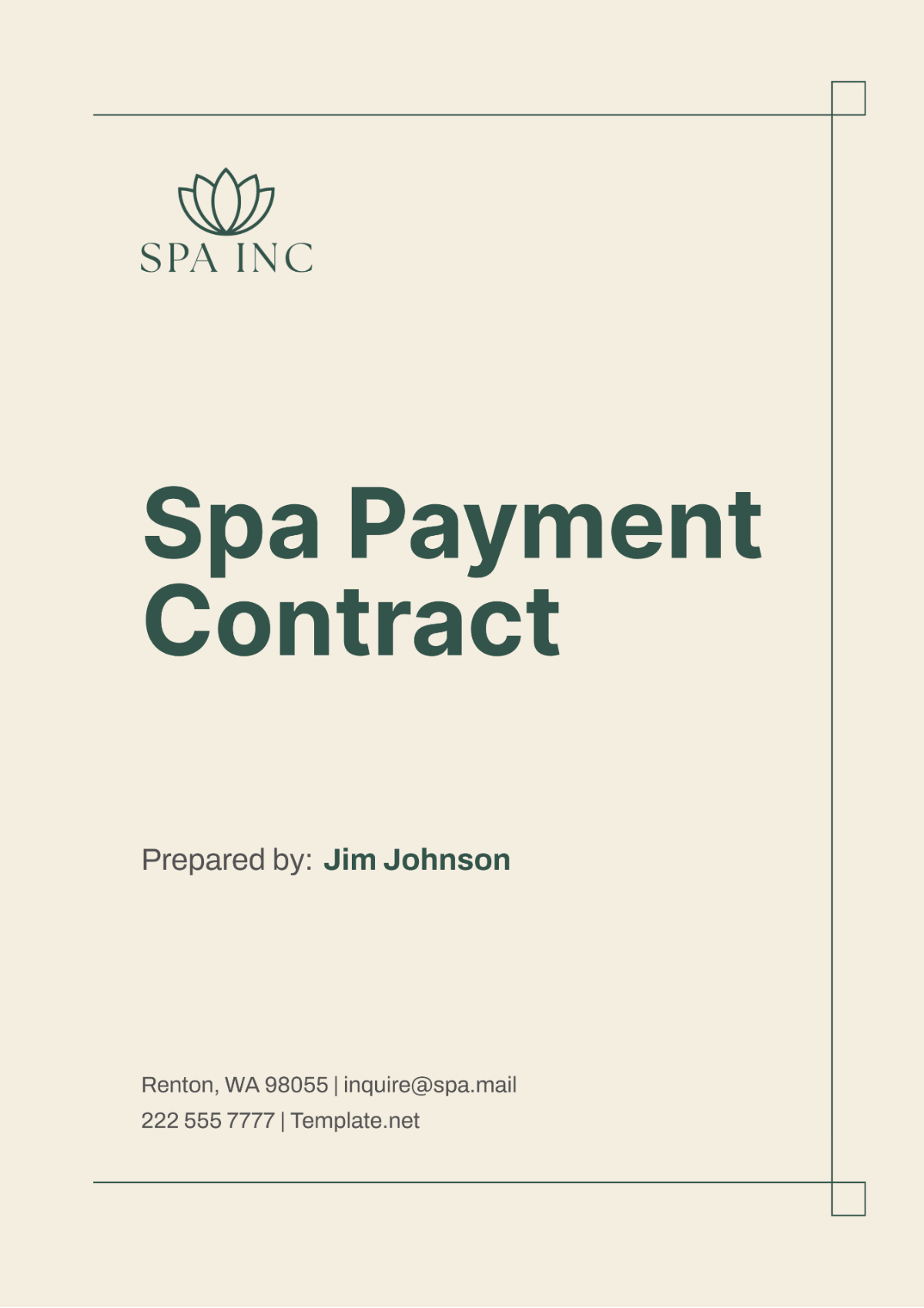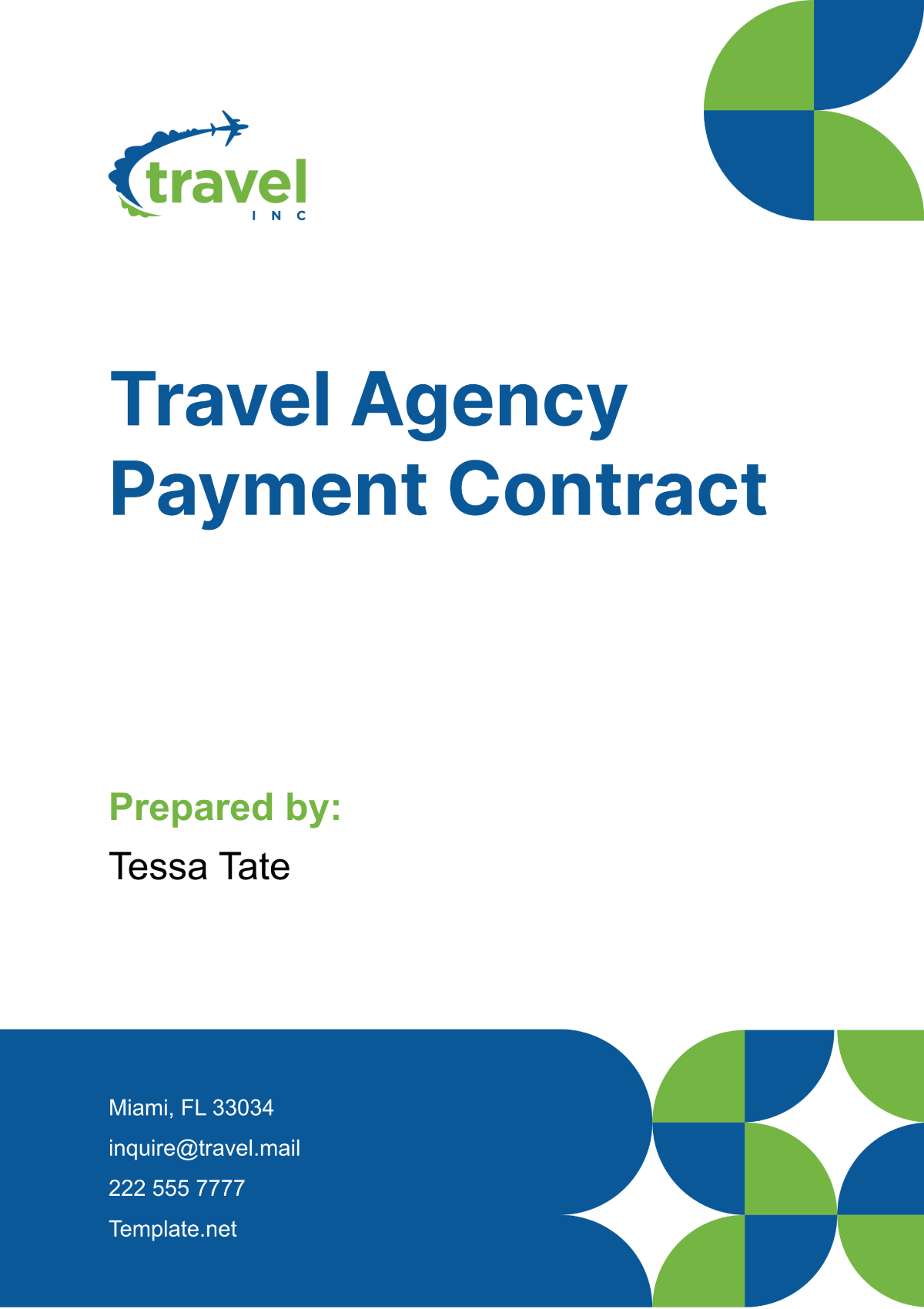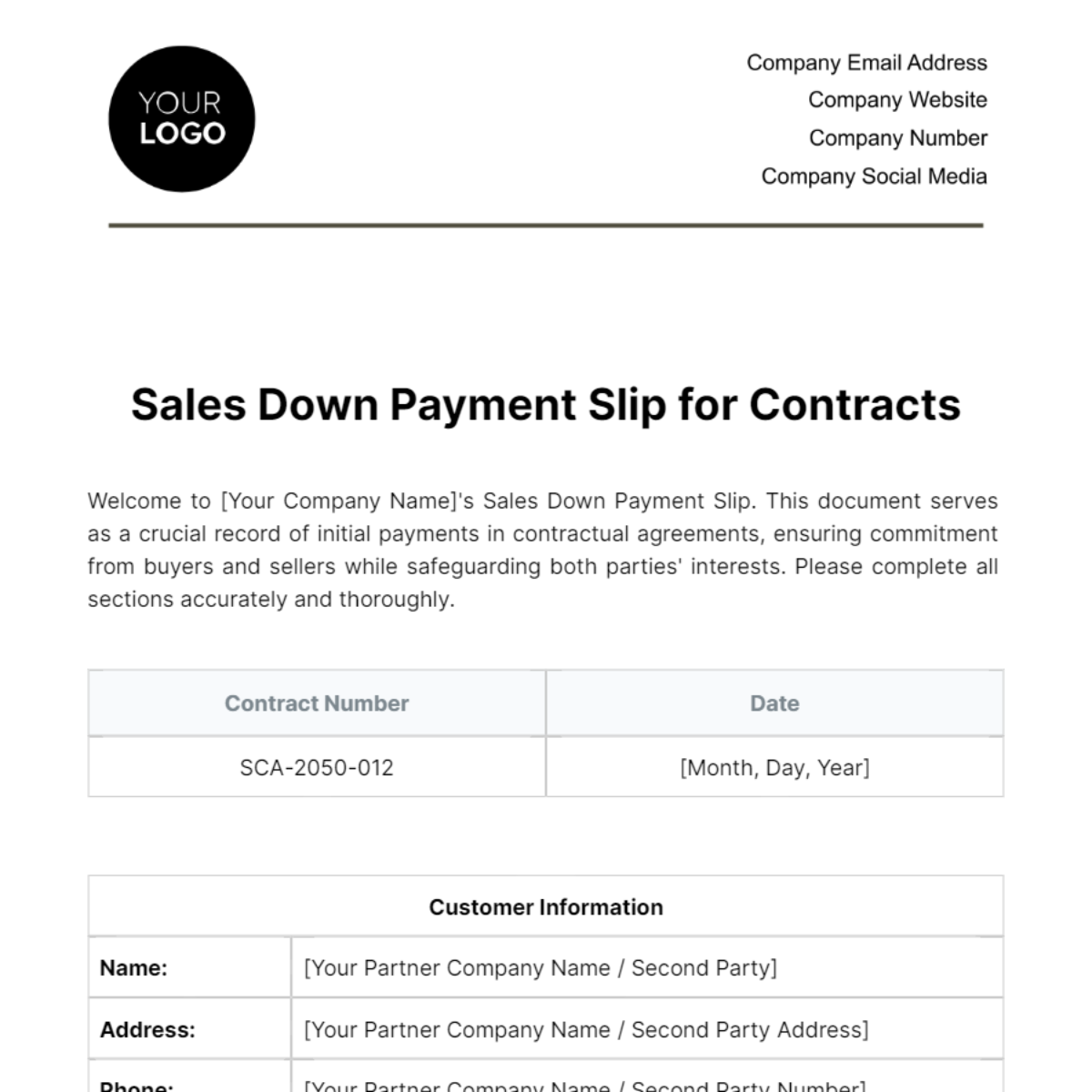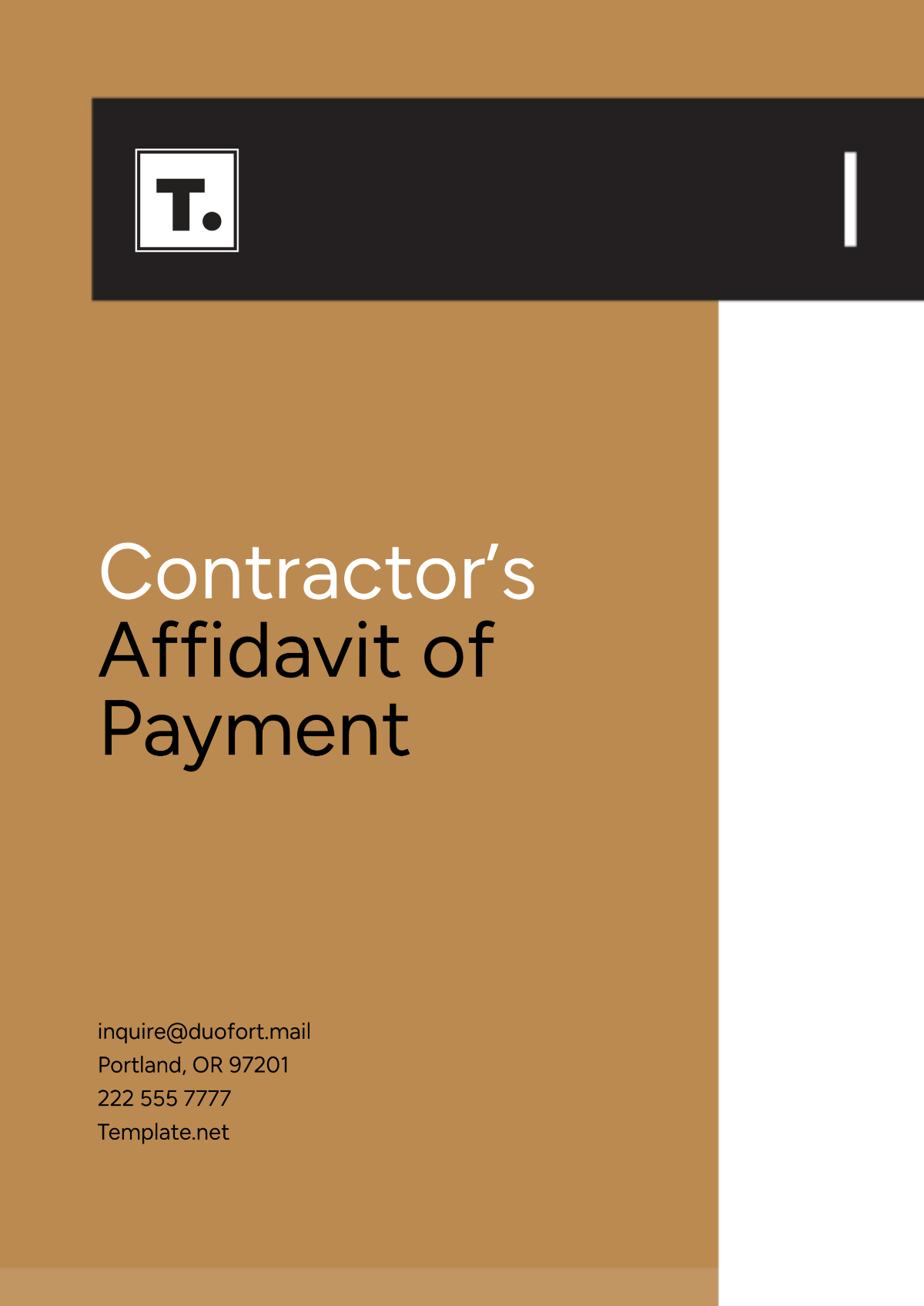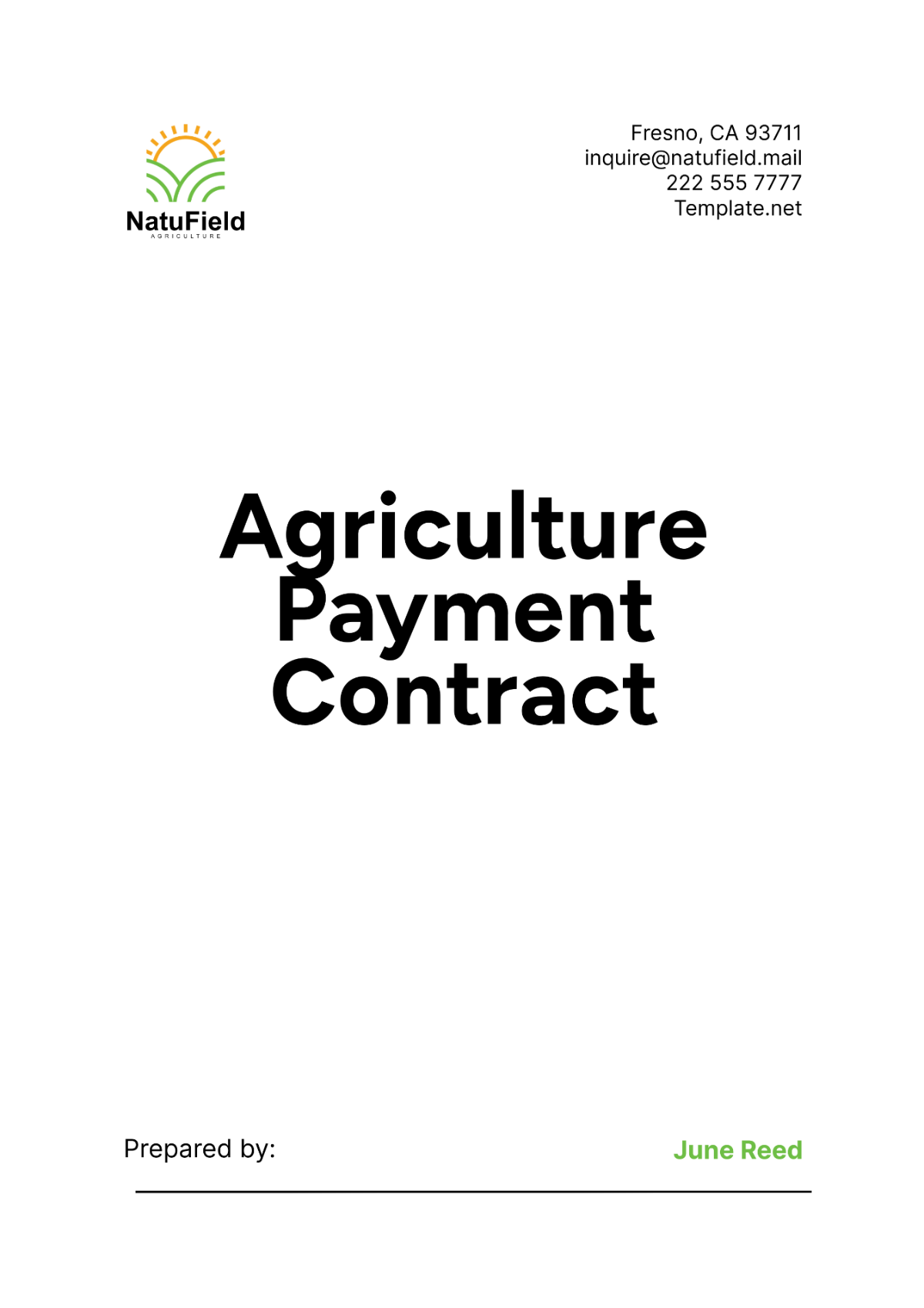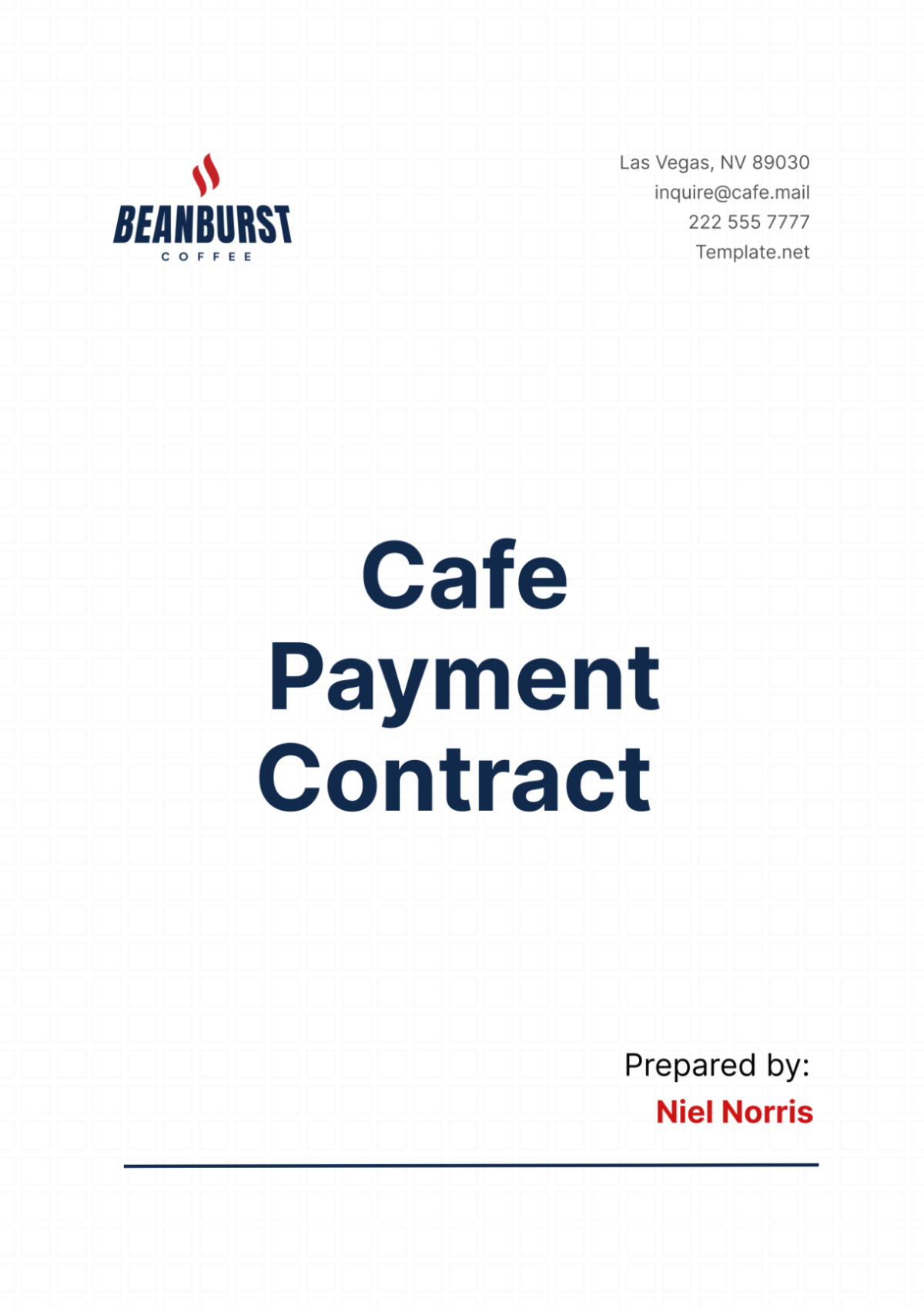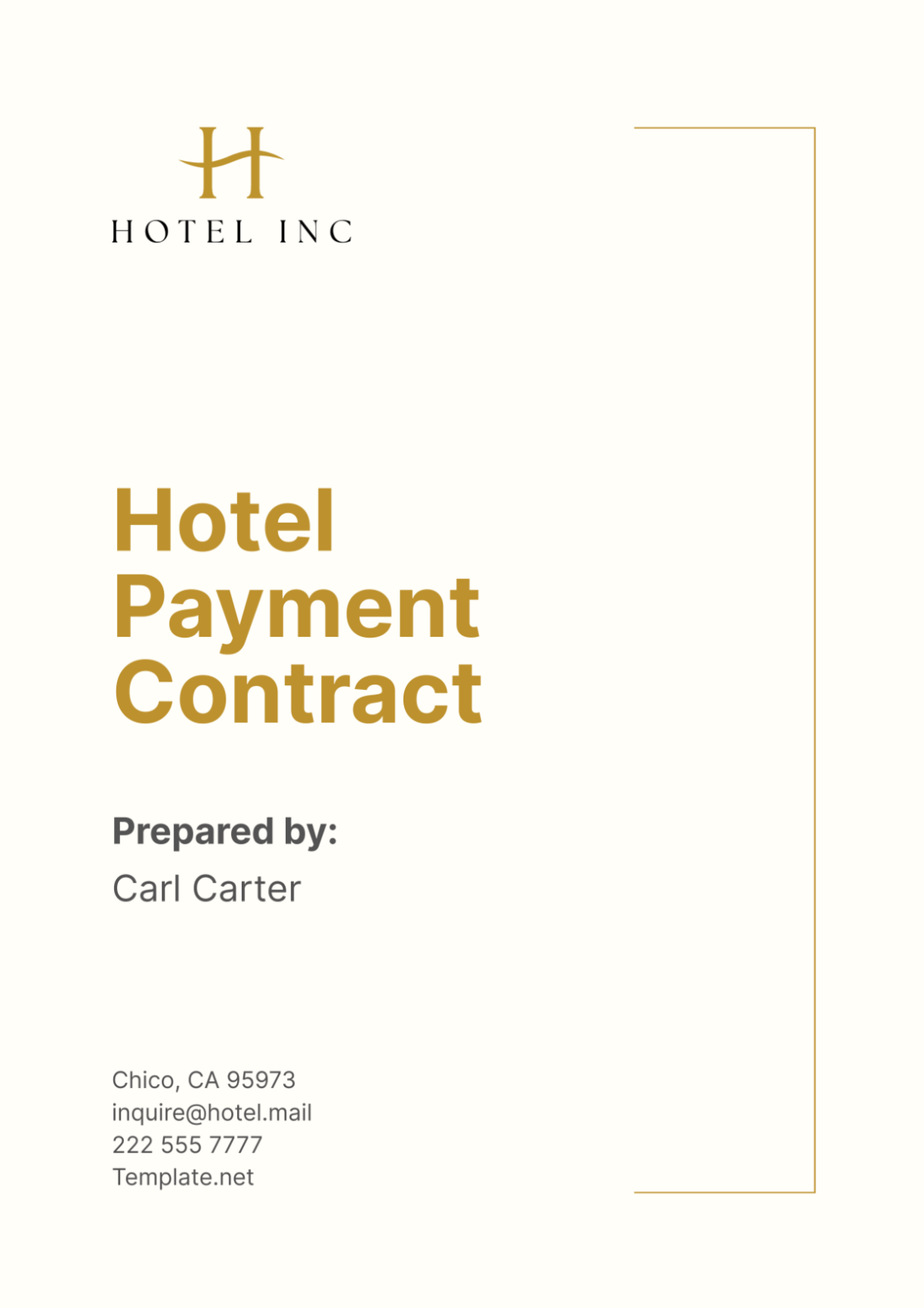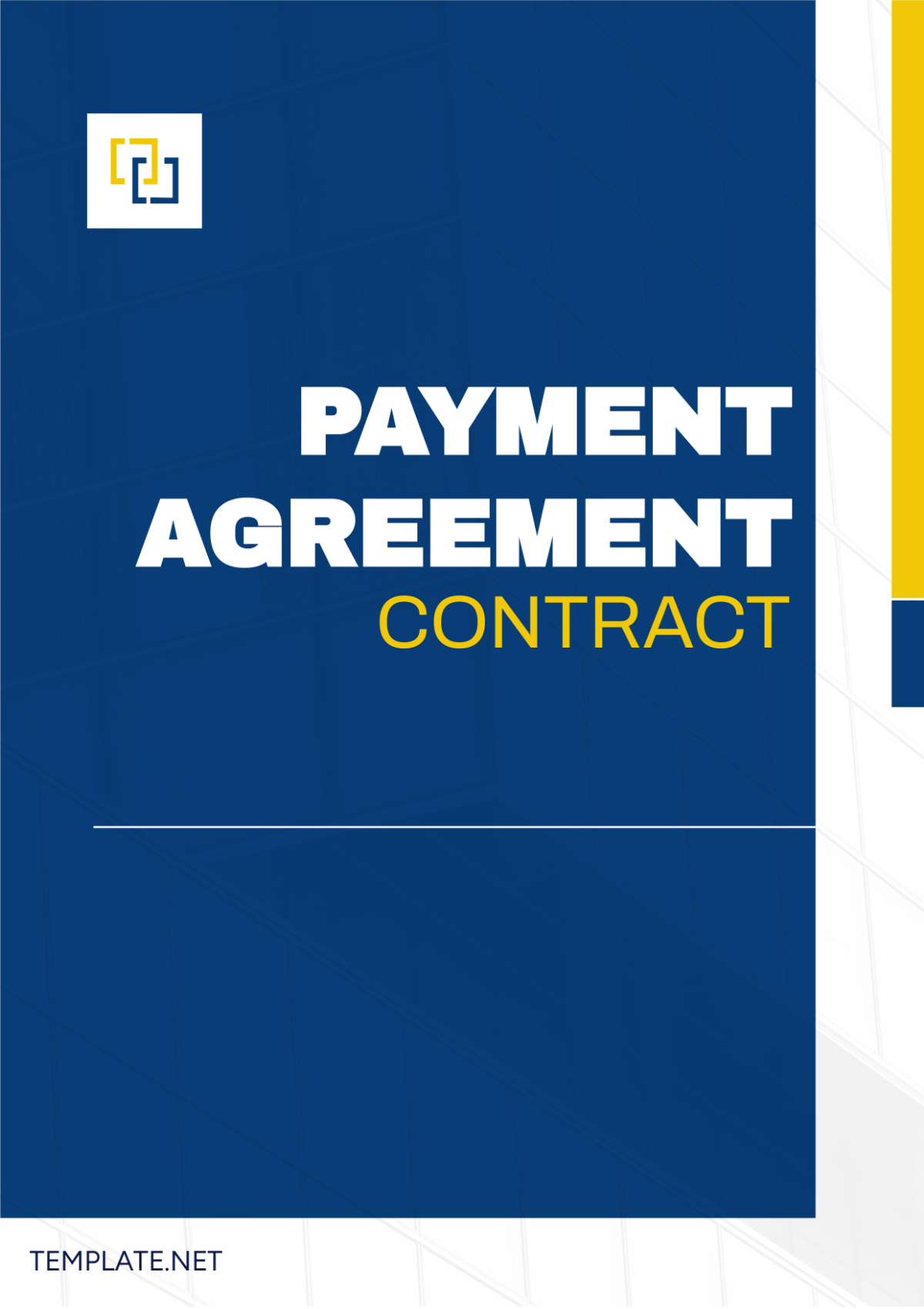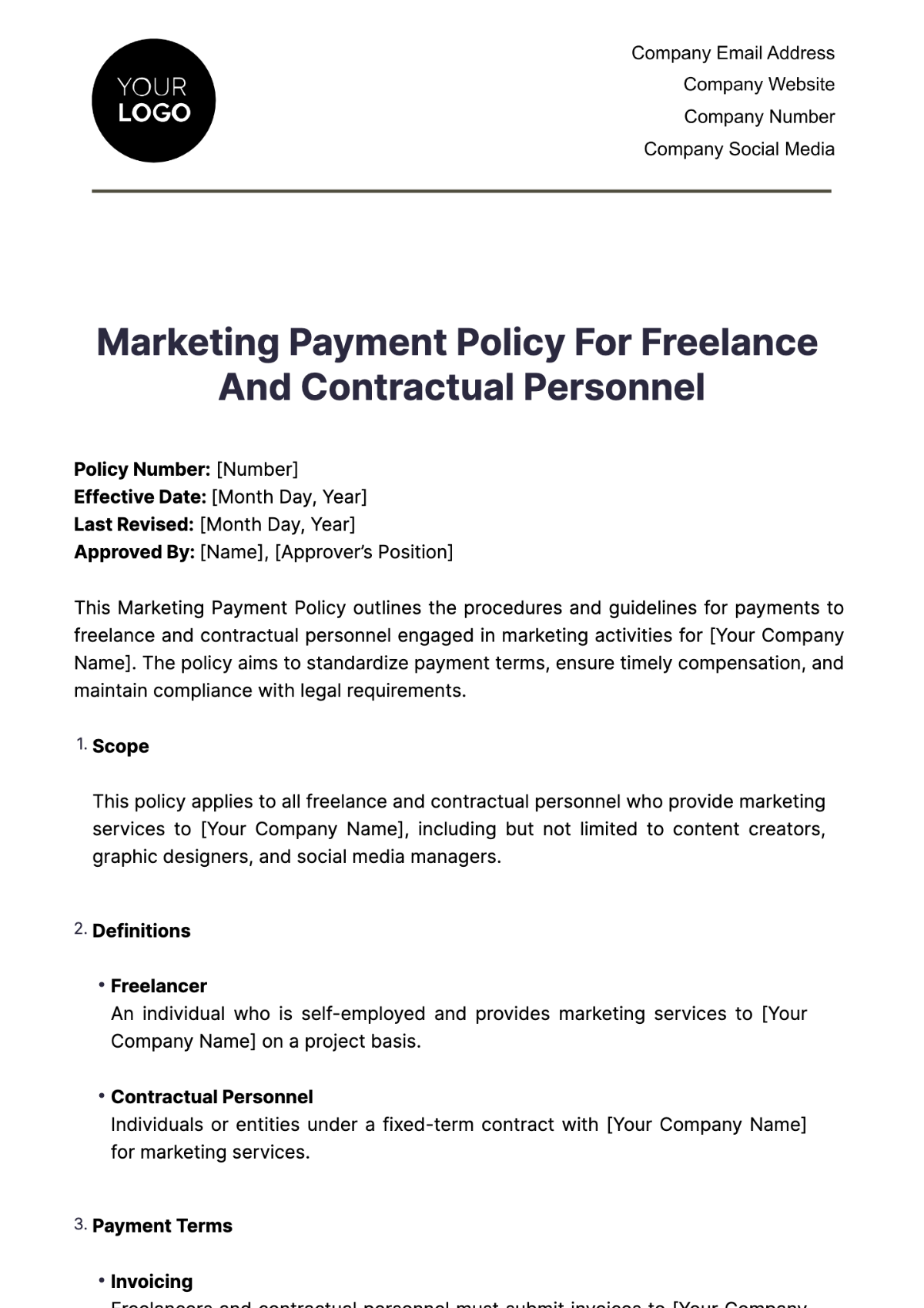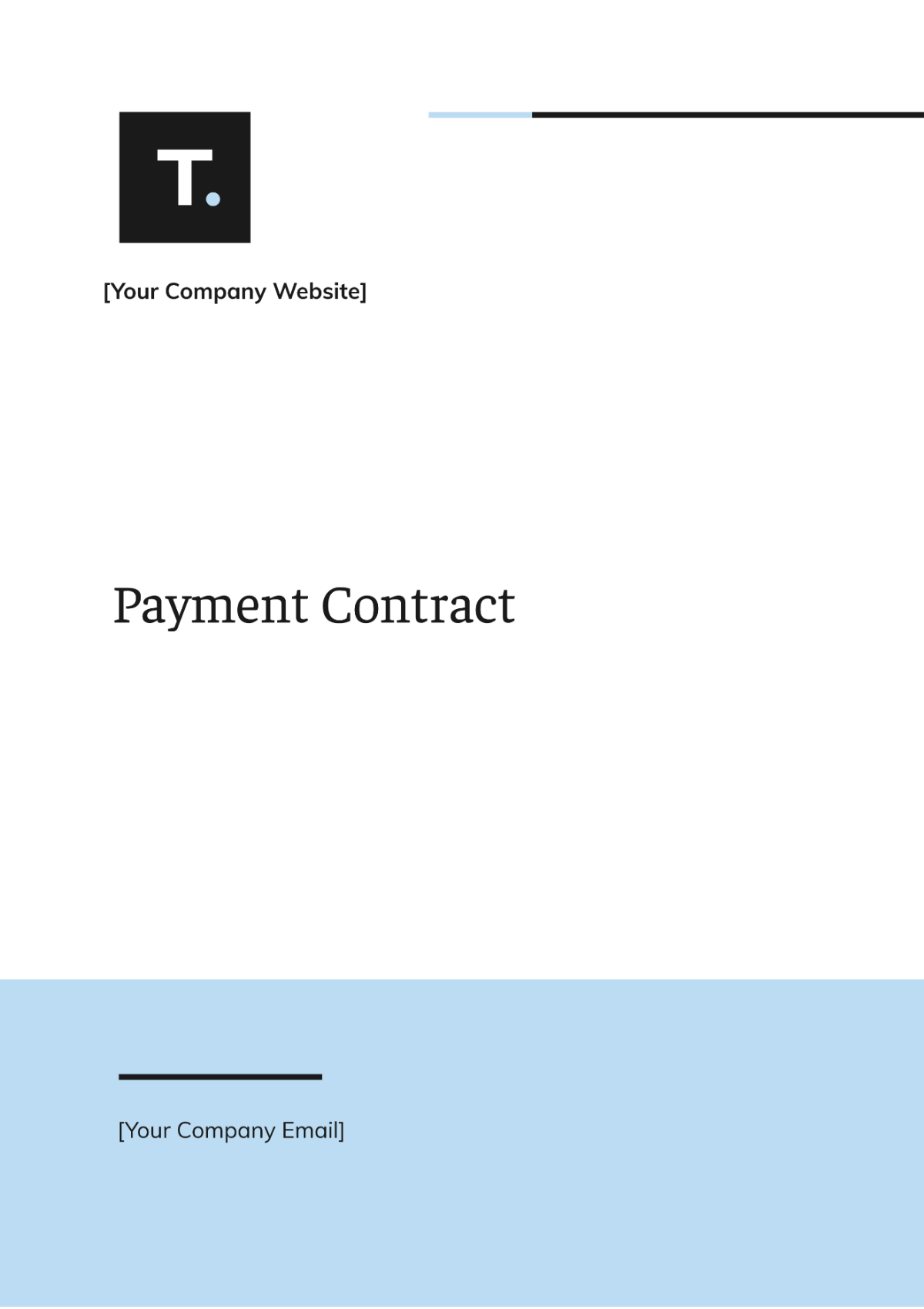Agriculture Payment Contract
I. The Parties
This Agriculture Payment Contract ("Contract") is made and entered into on [Month Day, Year] ("Effective Date") by and between [Your Company Name] hereinafter referred to as the ("Provider") with a primary place of business at [Your Company Address] and [Client's Name] hereinafter referred to as the ("Client") with a primary place of business at [Client's Address] may be referred to individually as a ("Party") or collectively as the ("Parties").
WHEREAS, the Provider is engaged in the business of offering specialized agricultural services;
WHEREAS, the Client desires to obtain the services of the Provider to perform certain agricultural operations on their property;
WHEREAS, the Parties seek to formalize their agreement concerning the services to be performed and the payment terms;
NOW THEREFORE, in consideration of the mutual promises herein contained, the Parties hereby agree as follows:
II. Services to be Provided
A. Description of Services
Planting Services: The Provider shall perform planting services for the Client's specified crop types, including [corn] and [soybeans]. This includes soil preparation, seeding, and ensuring proper planting techniques to maximize crop yield.
Weed Control Services: Weed control services shall be executed using both mechanical and chemical methods as per seasonal requirements. This ensures that the crops are protected from unwanted plant species that could affect their growth and yield.
Soil Testing and Fertilizer Application: The Provider is responsible for regular soil testing and fertilizer application as per the soil test results. This includes sampling the soil, analyzing its nutrient content, and applying the appropriate fertilizers to maintain optimal soil health.
Harvesting Services: Harvesting services shall include the use of mechanical harvesters and labor as needed during the harvest season. This ensures timely and efficient harvesting of crops to prevent losses and maintain quality.
Post-Harvest Crop Management: Post-harvest crop management, including storage and transportation to designated locations. This involves proper handling of crops after harvest to maintain their quality and facilitate smooth transportation to market or storage facilities.
B. Timeline
Commencement and Conclusion: Services shall commence on the Effective Date and conclude by [Month Day, Year], following the agreed-upon schedule. This timeline ensures all agricultural activities are completed within the growing season.
Seasonal Tasks: Specific tasks, such as soil testing and weed control, shall be completed by the middle of each growing season. Timely completion of these tasks is crucial for maintaining crop health and productivity.
Harvesting Window: Crops shall be harvested within the designated harvest window. This period is critical to ensure that crops are harvested at their peak ripeness to maximize yield and quality.
Post-Harvest Activities: Post-harvest activities shall be finalized within [30] days after the harvest period. This ensures all post-harvest processes are completed promptly to prepare for the next planting season.
C. Resource Allocation
Equipment: The Provider shall allocate appropriate equipment for each task, ensuring efficiency and effectiveness. This includes modern machinery for planting, weed control, and harvesting.
Labor: Adequate labor shall be provided to perform the services efficiently. Skilled personnel will be assigned to each task to ensure high-quality execution.
Materials: Necessary materials, such as seeds, fertilizers, and chemicals, will be supplied by the Provider. Ensuring the availability of these materials is essential for the successful completion of agricultural activities.
Contingency Plans: Contingency plans will be in place to address any unforeseen challenges, such as equipment failure or adverse weather conditions. This ensures that the services can be completed as scheduled.
Communication: Regular communication between the Provider and Client will be maintained to ensure alignment on tasks and timelines. This includes updates on progress and any adjustments needed.
III. Payment Terms
A. Payment Schedule
Initial Deposit: An initial deposit of [$5,000] shall be made upon executing this Contract. This deposit secures the Provider's commitment to the services outlined.
Quarterly Payments: Subsequent payments of [$2,500] shall be made quarterly on the [15th] of the specified months: [April], [July], and [October]. These payments ensure the Provider's ongoing operations and service delivery.
Final Payment: The final payment of [$3,000] shall be made upon the completion of all contracted services. This final payment confirms the Client's satisfaction with the services rendered.
Payment Methods: All payments should be processed through the Client's preferred method, either bank transfer or credit card payment. This flexibility accommodates the Client's convenience.
Invoices: The Client shall receive detailed invoices outlining the services rendered during each period. Transparent invoicing ensures clarity and accountability for both parties.
B. Late Payments
Late Fee: A late fee of [5]% shall be applied to any payments not received within [10] days of the due date. This fee compensates for any delays in the Provider's cash flow.
Service Halt: The Provider reserves the right to halt services if the Client fails to make the required payments within [30] days. Service halt ensures that the Provider is not incurring costs without receiving due payments.
Notification: In the event of halted services, the Client shall be notified in writing, and services will resume once payments are settled. Clear communication is maintained to resolve payment issues promptly.
Termination: Repeated late payments may result in the termination of this Contract by the Provider. This clause protects the Provider from prolonged financial instability.
C. Refund Policy
Refundable Deposits: Deposits are refundable up to [30] days before services commence, subject to a [$500] administration fee. This allows the Client to reconsider their commitment while compensating the Provider for administrative costs.
Non-Refundable Payments: Payments made after services have commenced are non-refundable under any circumstances. This ensures that the Provider is compensated for services already delivered.
Prorated Refunds: In the event of termination by the Client, the Provider may refund a prorated amount based on services performed up to the termination date. This fair approach compensates the Client for unused services.
Documentation: All refund requests must be documented and submitted in writing. This ensures that refund processes are transparent and traceable.
IV. Responsibilities of the Provider
A. Quality of Services
Industry Standards: The Provider shall use industry-standard equipment and techniques to perform all agricultural services. This ensures that services are delivered efficiently and effectively.
Qualified Personnel: All personnel employed by the Provider shall have relevant qualifications and experience in agricultural services. This guarantees that tasks are performed by skilled professionals.
Equipment Maintenance: In case of any equipment failure, the Provider shall make reasonable efforts to repair or replace the equipment promptly. This minimizes downtime and ensures continuity of services.
Insurance Coverage: The Provider shall maintain adequate insurance coverage, including liability and workers' compensation insurance. This protects both the Provider and the Client from potential risks.
Service Records: Records of services performed, including dates and descriptions, shall be maintained and provided to the Client upon request. This ensures transparency and accountability.
B. Compliance
Regulatory Compliance: The Provider shall comply with all local, state, and federal regulations concerning agricultural practices. This ensures that all activities are lawful and environmentally responsible.
Chemical Application: All chemical applications shall be performed according to the manufacturer's guidelines and regulatory requirements. This minimizes the risk of environmental harm and ensures crop safety.
Employee Training: The Provider shall ensure that all employees are trained in safety procedures and environmental protection regulations. This promotes a safe and sustainable working environment.
Regular Audits: Regular audits shall be conducted to ensure compliance with quality standards and legal requirements. This proactive approach identifies and addresses any issues promptly.
C. Environmental Stewardship
Sustainable Practices: The Provider shall implement sustainable agricultural practices to minimize environmental impact. This includes using eco-friendly products and techniques.
Resource Conservation: Efforts shall be made to conserve resources, such as water and energy, during agricultural operations. This promotes environmental sustainability and reduces costs.
Biodiversity Protection: Measures shall be taken to protect local biodiversity and wildlife habitats. This ensures that agricultural activities do not harm the natural ecosystem.
Waste Management: The Provider shall implement effective waste management practices to minimize pollution and waste generation. This includes proper disposal of agricultural chemicals and waste products.
V. Responsibilities of the Client
A. Access to Property
Full Access: The Client shall grant the Provider full access to the property as required for performing the services outlined in this Contract. This ensures that the Provider can carry out tasks efficiently.
Access Restrictions: Any restrictions to property access must be communicated to the Provider in writing at least [48] hours in advance. This allows the Provider to plan and adjust operations accordingly.
Equipment Storage: The Client shall provide adequate space and facilities for storage of the Provider's equipment on-site, if needed. This facilitates smooth and efficient operations.
Emergency Contact: Emergency contact information shall be provided to the Provider for immediate communication if issues arise. This ensures prompt resolution of any problems.
B. Timely Communication
Crop Changes: The Client shall promptly communicate any changes in the crop types, harvest schedule, or other relevant details. This ensures that the Provider can adjust services accordingly.
Concerns and Disputes: Any concerns or disputes regarding the services rendered must be raised within [7] days of their occurrence. This allows for timely resolution of issues.
Clear Liaison: The Client is responsible for ensuring all liaison with the Provider is clear and documented in writing where necessary. This ensures that all communications are traceable and transparent.
C. Financial Responsibilities
Timely Payments: The Client shall make all payments as per the agreed schedule to ensure the continuity of services. Timely payments support the Provider's operations and service delivery.
Cost Approvals: Any additional costs incurred during the services shall be approved by the Client in writing. This ensures transparency and prevents disputes over expenses.
Budget Planning: The Client shall plan and budget for the services to avoid any financial constraints. Proper financial planning ensures smooth operations and service continuity.
VI. Confidentiality
A. Confidential Information
Privacy Commitment: Both Parties agree to keep all confidential information received from the other Party private. This ensures that sensitive information is protected from unauthorized disclosure.
Disclosure Restrictions: Confidential information shall not be disclosed without prior written consent, except as required by law. This protects the interests of both Parties.
Protection Measures: Both Parties will take reasonable measures to protect the confidentiality of such information. This includes implementing security protocols to prevent unauthorized access.
Return of Information: Upon termination of this Contract, both Parties shall return or destroy all confidential information received from the other Party. This ensures that no confidential information is retained without consent.
B. Exclusions
Public Information: Information that is publicly known or becomes public through no fault of the receiving Party is not confidential. This ensures clarity on what constitutes confidential information.
Pre-Existing Information: Information already in possession of the receiving Party without confidentiality obligations is excluded. This prevents unnecessary confidentiality restrictions on pre-existing information.
Third-Party Disclosure: Information disclosed to a third party with prior consent is not considered confidential. This allows for necessary disclosures to authorized third parties.
VII. Term and Termination
A. Duration
Contract Term: Unless terminated earlier, this Contract shall remain effective from the Effective Date until all services are completed. This defines the period during which the Contract is valid.
Extension Agreement: The term of the Contract can be extended upon mutual agreement of both Parties in writing. This allows for flexibility in extending the Contract if needed.
Application of Terms: All terms and conditions of this Contract shall apply during any extended term unless amended in writing. This ensures continuity of terms during extensions.
Completion Confirmation: Upon completion of all services, both Parties shall confirm the fulfillment of Contract obligations. This provides a formal conclusion to the Contract.
B. Termination for Cause
Breach Notice: Either Party may terminate this Contract for cause if the other Party breaches any material term of this Contract. The terminating Party must provide written notice specifying the breach.
Cure Period: The terminating Party must allow [30] days for the other Party to cure the breach. This provides an opportunity to resolve the issue before termination.
Immediate Termination: If the breach is not cured within the specified period, the Contract may be terminated immediately. This protects the non-breaching Party from prolonged non-compliance.
Payment Obligations: Upon termination, the Provider shall cease all services, and the Client shall pay for all services rendered up to the termination date. This ensures fair compensation for services performed.
C. Termination for Convenience
Mutual Agreement: This Contract may be terminated at any time by mutual agreement of both Parties in writing. This provides flexibility for both Parties to end the Contract if needed.
Notice Period: Either Party may terminate the Contract for convenience by providing [60] days written notice to the other Party. This notice period allows for orderly cessation of services.
Final Payments: Upon termination for convenience, the Client shall make final payments for all services rendered up to the termination date. This ensures the Provider is compensated for completed work.
Transition Plan: Both Parties shall develop a transition plan to ensure smooth cessation of services. This minimizes disruption and ensures a seamless transition.
VIII. Indemnification
A. By the Provider
Negligence Coverage: The Provider shall indemnify and hold the Client harmless from any claims, liabilities, or expenses arising from the Provider's negligence. This protects the Client from financial loss due to Provider’s negligence.
Insurance Policies: Insurance policies shall be maintained to cover any potential liabilities arising from the performance of services under this Contract. This ensures that the Provider has financial coverage for liabilities.
Dispute Resolution: The Provider shall seek to resolve any disputes amicably before pursuing legal action. This promotes a cooperative approach to conflict resolution.
Legal Representation: In case of legal disputes, the Provider shall bear the costs of its own legal representation. This ensures that the Client is not financially burdened by the Provider's legal expenses.
B. By the Client
Negligence Coverage: The Client shall indemnify and hold the Provider harmless from any claims arising from the Client’s negligence or willful misconduct. This protects the Provider from financial loss due to the Client’s actions.
Regulatory Compliance: The Client is responsible for ensuring the property complies with all local, state, and federal regulations. Compliance prevents legal issues and promotes safe agricultural practices.
Damage Compensation: Any damages or losses incurred by the Provider due to the Client’s failure to comply will be compensated by the Client. This ensures that the Provider is not financially disadvantaged by the Client’s non-compliance.
Dispute Resolution: The Client shall seek to resolve any disputes amicably before pursuing legal action. This promotes a cooperative approach to conflict resolution.
C. Liability Limitations
Limitation of Liability: The liability of both Parties shall be limited to direct damages only. Neither Party shall be liable for any indirect, incidental, or consequential damages.
Force Majeure: Neither Party shall be liable for any failure to perform due to events beyond their control, such as natural disasters or government actions. This clause protects both Parties from uncontrollable events.
Indemnification Procedures: The indemnified Party must notify the indemnifying Party of any claims promptly. This ensures that both Parties are aware of potential liabilities and can take appropriate action.
Cooperation: Both Parties agree to cooperate fully in the defense of any indemnified claims. This collaborative approach ensures effective handling of claims.
IX. Dispute Resolution
A. Mediation
Initial Attempt: Both Parties agree to first attempt to resolve any disputes through mediation before pursuing other legal remedies. This encourages an amicable resolution of conflicts.
Mediator Selection: A neutral third-party mediator shall be selected by mutual agreement of both Parties for the mediation process. This ensures that the mediator is impartial and acceptable to both Parties.
Shared Costs: Mediation costs shall be shared equally by both Parties. This ensures that both Parties are equally invested in the mediation process.
Confidential Process: The mediation process shall be confidential, and no information disclosed during mediation may be used in any subsequent legal proceedings. This promotes open and honest communication.
B. Arbitration
Binding Arbitration: In the event mediation fails, disputes shall be resolved through binding arbitration according to the rules of the [American Arbitration Association]. This provides a definitive resolution to conflicts.
Arbitrator's Decision: The arbitrator’s decision shall be final and binding on both Parties. This ensures that the resolution is respected and implemented.
Cost Sharing: Costs of arbitration shall be shared equally by both Parties. This promotes fairness in the arbitration process.
Venue: Arbitration shall take place in the jurisdiction of the Provider's primary place of business unless mutually agreed otherwise. This provides a convenient location for both Parties.
C. Legal Proceedings
Jurisdiction: Any legal actions arising from this Contract shall be brought exclusively in the courts of the state where the Provider's primary place of business is located. This ensures a consistent legal framework.
Venue: Both Parties waive any right to contest jurisdiction or venue as improper. This simplifies legal proceedings by establishing a clear venue.
Legal Costs: Each Party shall bear its own legal costs unless otherwise decided by the court. This ensures that neither Party is unfairly burdened by legal expenses.
Dispute Continuity: Despite any disputes, both Parties agree to continue performing their obligations under this Contract until a resolution is reached. This ensures that services are not disrupted during the dispute resolution process.
X. General Provisions
A. Governing Law
Applicable Laws: This Contract shall be governed by and construed in accordance with the laws of the state where the Provider's primary place of business is located. This provides a consistent legal framework for the Contract.
Exclusive Jurisdiction: Any legal actions arising from this Contract shall be brought exclusively in the courts of that state. This ensures that disputes are resolved within a familiar legal environment.
Waiver of Contest: Both Parties waive any right to contest jurisdiction or venue as improper. This simplifies legal proceedings by establishing a clear jurisdiction.
Legal Compliance: Both Parties agree to comply with all applicable laws and regulations in the performance of their obligations under this Contract. This ensures lawful conduct of all activities.
B. Amendments
Written Agreement: This Contract may only be amended or modified by a written agreement signed by authorized representatives of both Parties. This ensures that any changes are formally documented and agreed upon.
Assignment Restrictions: Neither Party can assign their rights or obligations under this Contract without the prior written consent of the other Party. This ensures that both Parties have control over any changes in obligations.
Amendment Reference: Any amendments must reference this Contract and be dated and signed by both Parties. This ensures that amendments are clearly linked to the original Contract.
Binding Amendments: All amendments shall be binding on both Parties once signed. This ensures that any changes are officially recognized and enforceable.
C. Entire Agreement
Superseding Agreement: This Contract constitutes the entire agreement between the Parties and supersedes all prior agreements, understandings, and communications. This provides a clear and comprehensive agreement.
No Representations: No representations or promises have been made other than those set out in this Contract. This ensures that all terms and conditions are explicitly stated.
Written Documentation: Any prior agreements, whether oral or written, are void unless they are explicitly incorporated into this Contract. This ensures that the Contract is the sole source of obligations and rights.
Integration Clause: This Contract includes all the terms and conditions agreed upon by the Parties, and any changes must be in writing and signed by both Parties. This ensures that the Contract remains comprehensive and up-to-date.
D. Severability
Valid Provisions: If any provision of this Contract is found to be invalid or unenforceable, the remaining provisions shall continue in full force and effect. This ensures that the Contract remains operational even if part of it is invalidated.
Replacement Clause: The invalid provision shall be replaced by a valid provision that most closely reflects the original intent of the Parties. This maintains the Contract’s overall purpose.
Partial Invalidity: The invalidity of any part of this Contract does not affect the validity of the remaining parts. This ensures that the majority of the Contract remains enforceable.
Consistency: Both Parties agree to interpret and enforce the Contract in a manner consistent with its original intent. This promotes a unified understanding and application of the Contract.
E. Notices
Written Notice: All notices and communications under this Contract must be in writing and delivered by hand, certified mail, or electronic mail. This ensures that all notices are officially documented.
Notice Address: Notices shall be sent to the addresses specified in the Contract or to any other address that either Party may designate in writing. This ensures that notices are directed to the correct location.
Receipt Confirmation: Notices are considered received upon delivery if delivered by hand, or upon confirmation of receipt if sent by certified mail or electronic mail. This establishes a clear timeline for communication.
Change of Address: Either Party may change their notice address by providing written notice to the other Party. This ensures that address changes are officially recognized.
F. Counterparts
Multiple Copies: This Contract may be executed in multiple counterparts, each of which shall be deemed an original, but all of which together shall constitute one and the same instrument. This allows for flexibility in signing.
Electronic Signatures: Electronic signatures shall be considered valid and binding. This facilitates the signing process in a modern and efficient manner.
Binding Effect: Once executed, each counterpart shall be binding on both Parties. This ensures that all copies are equally enforceable.
Single Document: All counterparts shall be considered parts of a single document and treated as such for all purposes. This maintains the unity and integrity of the Contract.
XI. Signatures
IN WITNESS WHEREOF, the Parties hereto have executed this Contract as of the Effective Date.
Provider

[Authorized Representative Name]
[Your Company Name]
Date: [Month Day, Year]
Client

[Client's Name]
Date: [Month Day, Year]
